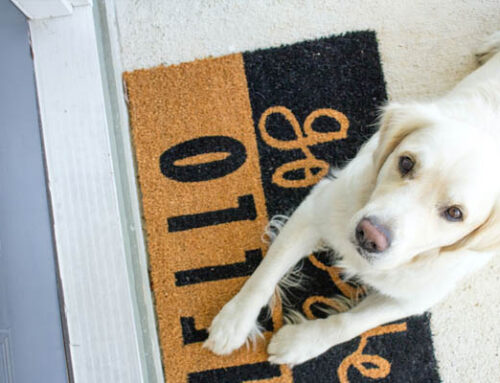Why is concept training important?
I was introduced to Concept Training by vet/behaviorist Tom Mitchell. This approach to training has been priceless in my own experience with my dogs and for my clients as well. In this way we are able to work deeper past simple behaviors in traditional training such as “sit” “down” “stay”. This traditional approach to training has proven to be a very small box giving us limited results for the struggles that are most important to us. With concept training we move to a higher level of building behaviors that will give our dogs the ability to behave better in day to day situations.
What is concept training for dogs?
Concept training is shaping our dog’s personalities by building crucial concepts that will improve results in real life situations. Concepts like calmness, optimism, self-control and focus.
Let’s take a look at how these concepts relate to you and some possible struggles you are having with your dog.
Calmness – this one is HUGE! A calm dog is a good dog that is able to make better decisions. This realization has been the biggest game changer for me. Let’s think about some dog challenges. Jumping on people, pulling on leash, over excitement when meeting other dogs, excessive barking, pestering other animals in the house and bouncing around while you’re trying to work on your computer. If we can shape our dog’s brain to operate from a state of calmness, think about how much improvement we can make in those scenarios. As a side note, it’s important to note this calmness concept does not diminish the positive attributes of playfulness, activeness and athleticism; it simply helps us balance being able to live in calmness in between those times of play and activeness.
Optimism – This one is mostly overlooked as a crucial concept by dog owners. Optimism is our dogs ability to be trusting with new, strange and unusual things, people or events. Many dog struggles are often fueled from a dog being worried about an object or situation. Fear is an easy one to associate with this concept. Dogs that are fearful are defaulting to pessimism and worry with many settings. A seemingly easy walk down the street can produce anxiety in a dog that lacks optimism and can make simple activities like getting in a vehicle difficult. Inappropriate behavior in some of these scenarios is often misinterpreted as protective, territorial or even aggressive. Often though it’s really a lack of confidence, or optimism that is fueling these outbursts of barking and lunging.
Self-control – The self-control concept is the dog’s ability to control his impulses, to learn how to think instead of simply react. Controlling impulses is an extremely powerful concept and one I probably enjoy training the most. This is a prime example of how we should be training FOR the situation instead of IN the situation. Self-control is lacking in a large number of dogs because it’s not a concept that is practiced much. Fortunately we have a variety of games we can play to dramatically enhance their ability to exhibit self-control. I love to practice this and I love even more the results produced! Even better, the dogs love it too!
Focus – The focus concept will build our dog’s personality to pay attention to us and where we are. This is a fairly obvious concept most owners recognize they want. I find this attribute is more easily accomplished with concept training; playing games that reinforce the behavior to focus on us. In many cases we also may need the dog to focus on an object or task. This is typically needed for dog sports including agility and obedience competitions. Overall better focus on you and less focus on distractions in the environment will create a well-mannered dog.
Games for the win/win
You can stop spending so much time on formal sits, downs and stays. Instead opt to play games to train concepts and create fantastic habits that will last a lifetime!




Leave A Comment